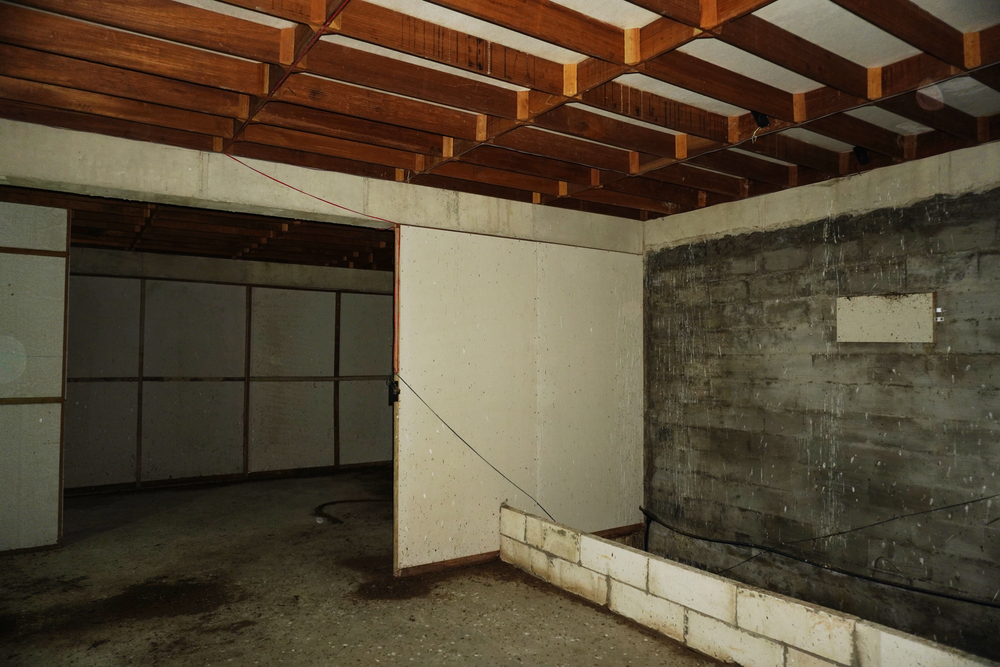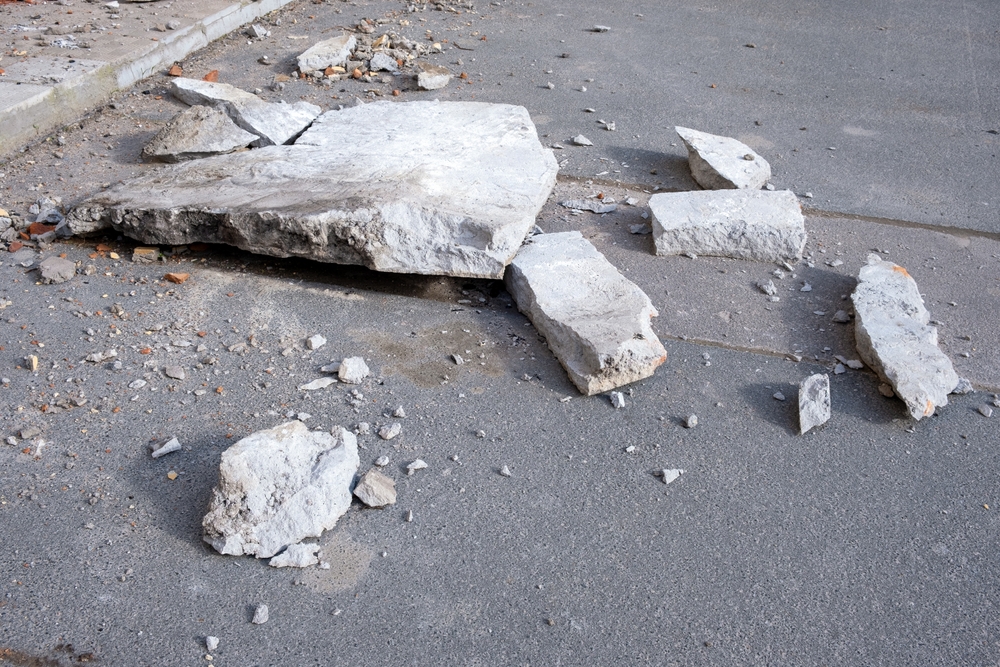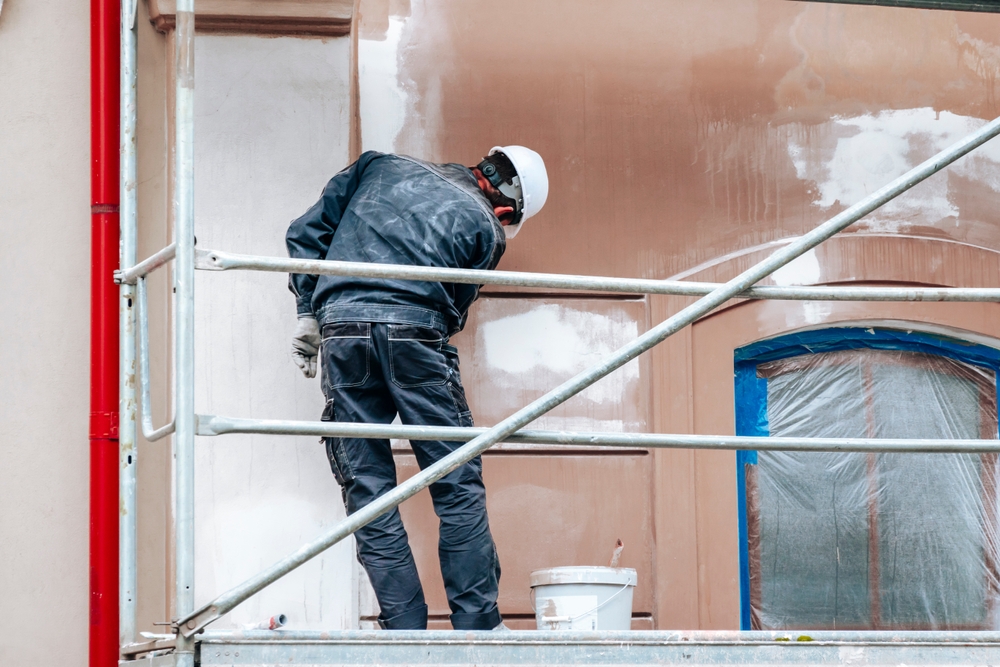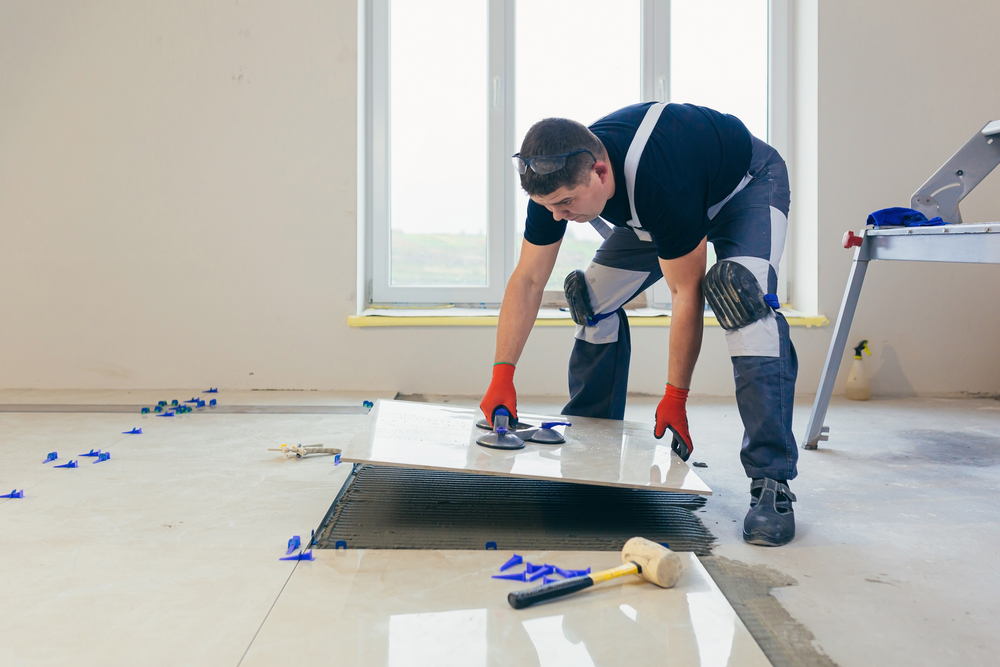April 12, 2024 - Benjamin Ehinger
Musty Smell in the Basement: How to Identify and Eliminate Odors
CALL NOW 844-762-8449
When confronted with a musty smell in your basement, it’s both uninviting and potentially indicative of deeper issues. These odors are commonly due to the presence of mold and mildew, thriving in the damp and often poorly ventilated environment of a basement. Tackling this problem requires a multi-faceted approach, starting with identifying the causes, such as leaks or high humidity, which provide the perfect breeding ground for these unwelcome guests.
Maintaining a dry and well-ventilated basement is key to preventing musty smells. By addressing the humidity levels with dehumidifiers, ensuring proper airflow, and waterproofing your basement, you create an inhospitable environment for mold and mildew. Routine cleaning and inspections for potential leak sources also help keep your basement smelling fresh. Furthermore, integrating materials and furnishings that resist moisture can play a significant role in maintaining a pleasant basement space.
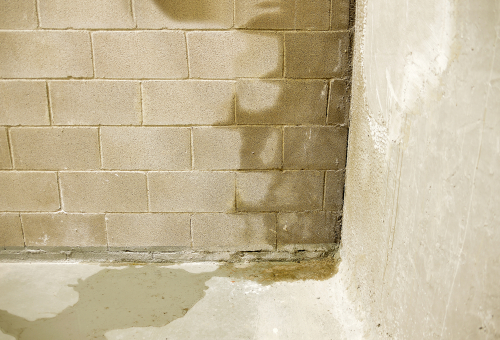 Controlling moisture is essential to eliminating musty odors in your basement. Efficient solutions like dehumidifiers and water diversion systems such as sump pumps and French drains are critical.
Controlling moisture is essential to eliminating musty odors in your basement. Efficient solutions like dehumidifiers and water diversion systems such as sump pumps and French drains are critical.
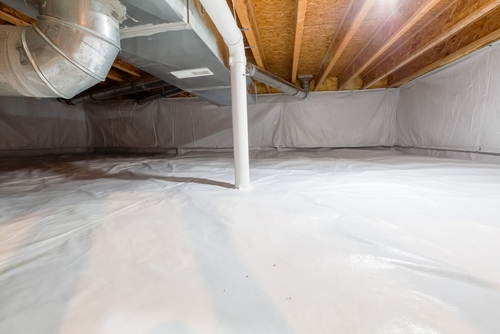 Controlling humidity and preventing condensation are critical to maintaining a comfortable and mold-free basement environment. Both play a role in contributing to or reducing musty odors and potential structural issues.
Controlling humidity and preventing condensation are critical to maintaining a comfortable and mold-free basement environment. Both play a role in contributing to or reducing musty odors and potential structural issues.
Remember, regularly replacing or refreshing these materials is crucial for maintaining their effectiveness. For persistent problems, consult professionals to address any underlying moisture concerns, as this will signal a proactive approach to musty smell in the basement.
Proper ventilation is also crucial. Ensure your basement has adequate airflow, as this can help prevent the accumulation of stagnant, musty air. Simple actions like opening windows when weather permits and using fans can significantly aid in air circulation and quality.
Key Takeaways
- Musty basement odors are typically caused by mold and mildew growth due to damp conditions.
- Regular inspection, ventilation, and moisture control are essential in preventing and eliminating musty smells.
- Consistent cleaning and use of moisture-resistant materials help maintain a fresher basement environment.
Identifying the Source of Musty Smells
When you notice a musty odor in your basement, it’s typically a strong indicator of excess moisture and the possible presence of mold or mildew. Pinpointing the source is crucial to effectively address and prevent potential health hazards and damage to your home.Common Causes of Basement Dampness
Your basement can become damp for various reasons, contributing to an overall musty smell. Here are some common causes to consider:- Leaks: Check for signs of water leaks, which can come from faulty plumbing or cracks in your foundation.
- Condensation: High humidity can lead to condensation, especially on cool surfaces, adding to the damp atmosphere.
- External Water: Ensure that rainwater or groundwater isn’t seeping in due to poor drainage around your home’s exterior.
Signs of Mold and Mildew Growth
To confirm suspicions of mold or mildew, you need to look for visible signs and be aware of certain clues:- Visual Indicators: Spotting black, green, or white patches on walls, ceilings, or floors can signal mold growth.
- Distinctive Smell: A persistent earthy or musty odor often accompanies mold or mildew presence.
Effective Ventilation Techniques
Ensuring proper ventilation in your basement is crucial for preventing musty odors and maintaining air quality. Enhancing airflow and using mechanical aids like fans can effectively mitigate this common issue.Improving Air Circulation
Your basement’s air circulation is key to combating stagnant, musty air. Start by repositioning furniture and storage boxes to create clear paths for air to move freely. Ensure that your basement window—if present—is operational and can be opened to allow outside air to flow in, which is essential for natural ventilation.- Rearrange obstructive items: Keep paths clear for airflow.
- Utilize basement windows: Open regularly to promote natural air exchange.
Using Exhaust Fans and Window Fans
To actively manage your basement’s air quality, incorporating exhaust fans can be highly effective. An exhaust fan helps expel damp, stale air while drawing fresh air inside. In areas where installing an exhaust fan might be impractical, a window fan can serve as an alternative, fitting securely into the window space and helping to push out the interior air.- Install exhaust fans: These are particularly beneficial in basement bathrooms or kitchens to reduce moisture and odors.
- Employ window fans: For a simple solution, place window fans to facilitate air expulsion when natural ventilation isn’t enough.
Moisture Control Solutions
 Controlling moisture is essential to eliminating musty odors in your basement. Efficient solutions like dehumidifiers and water diversion systems such as sump pumps and French drains are critical.
Controlling moisture is essential to eliminating musty odors in your basement. Efficient solutions like dehumidifiers and water diversion systems such as sump pumps and French drains are critical.
Implementing Dehumidifiers
A dehumidifier plays a pivotal role in maintaining the humidity levels in your basement. By drawing excess moisture from the air, dehumidifiers prevent the damp conditions that breed mold and mildew. Select a unit with a capacity appropriate for your basement size and ensure regular maintenance for optimal performance.The Role of Sump Pumps and French Drains
Sump pumps and French drains are fundamental in managing groundwater levels. A sump pump installed in the lowest part of your basement helps to expel water accumulation, while a French drain system redirects water away from your foundation, preventing it from making your basement damp. Ensure both systems are well-maintained and free from obstructions to effectively control basement moisture.Inspection and Repair of Basements
When addressing a musty smell in your basement, it’s critical to inspect for and repair any structural issues or water leaks. These can often be the root causes of odors and humidity problems in your home.Checking for Plumbing Leaks
You should first examine all pipes for signs of condensation or leaking pipes. Check the joints and look for wet spots on the walls or ceilings that may indicate hidden problems. Even a small drip can create a moist environment conducive to musty smells.Sealing Cracks and Openings
Next, identify any cracks or openings where moisture can enter. Use a quality sealant to repair these defects, as they not only contribute to water issues but can also affect your basement’s overall integrity and insulation. Remember that proper sealing is particularly important in areas prone to heavy rains or flooding.Foundation Assessments
Finally, assessing the foundation is imperative. Look for cracks or signs of movement which might suggest more significant issues. In some cases, professional foundation assessments may be necessary to identify and rectify serious structural concerns that could lead to chronic basement dampness. Regular maintenance and timely repairs can prevent future musty odors and protect your home’s value.Cleaning Methods for Musty Basements
If you’re dealing with a musty basement, employing effective basement cleaning methods is key for restoring freshness. Both natural and chemical options are available, tailored to the severity and scope of your mold and odor challenges.Using Natural Cleaning Agents
For a non-toxic approach, white vinegar can be a potent ally against mustiness. Its acidity helps break down mold and neutralize odors. Simply mix equal parts water and vinegar in a spray bottle, and generously mist the affected areas. After application, let it air dry to maximize efficacy. Baking soda also offers a straightforward solution for odor absorption. You can distribute bowls of baking soda around your basement or sprinkle it on damp areas and vacuum it up after a few hours for localized treatment.- Vinegar Solution: Mix equal parts water and vinegar. Spray and air dry.
- Baking Soda: Place in bowls or sprinkle on areas, then vacuum.
Chemical Solutions for Persistent Odors
When natural methods fall short, a more robust bleach solution can be your next step. Combining one part household bleach with four parts water creates a potent mix that can be applied to moldy surfaces. Remember to wear protective gear, as bleach is harsh on skin and lungs. For deep-seated issues, consider borax—a natural mineral that, while stronger than vinegar or baking soda, should still be used with caution. Create a solution by dissolving half a cup of borax in a gallon of warm water, then apply it to the affected areas without rinsing for maximum mold combat.- Bleach Solution: 1 part bleach to 4 parts water. Apply with a stiff brush.
- Borax: Half a cup dissolved in a gallon of water. Apply and do not rinse.
Addressing Basement Humidity and Condensation
 Controlling humidity and preventing condensation are critical to maintaining a comfortable and mold-free basement environment. Both play a role in contributing to or reducing musty odors and potential structural issues.
Controlling humidity and preventing condensation are critical to maintaining a comfortable and mold-free basement environment. Both play a role in contributing to or reducing musty odors and potential structural issues.
Understanding Humidity Levels
The ideal range for humidity in your basement is between 30% to 50%. High humidity levels above this range can lead to unwanted condensation on surfaces and subsequently, mold growth. It’s essential to monitor these levels with a hygrometer to ensure they remain within a healthy range. Reducing high humidity is achievable by improving ventilation or using a dehumidifier.Preventing Condensation
To prevent condensation, you must stabilize temperature differences between the basement air and its surfaces. Insulate pipes and windows to reduce cold spots where moisture can collect. Proper weather stripping on doors and windows can also prevent excess moisture from entering. Ensure that dryers and other appliances are venting outside properly, as they can contribute significantly to indoor moisture levels.Basement Waterproofing Techniques
To effectively tackle the challenge of a musty basement, it is essential to understand that proper waterproofing techniques are vital. Whether opting for interior methods or considering the exterior, the key lies in choosing the right strategy to meet the unique needs of your basement.Interior Drainage Systems
One of the most reliable methods for keeping your basement dry is installing an interior drainage system. This setup involves creating a channel around the perimeter of your basement floor to catch water that seeps in. The water is then directed to a sump pump, which automatically expels the water away from your home. Basement Waterproofing Pros emphasize that having a properly installed interior drainage system is a cost-effective solution for chronic basement moisture issues.Exterior Waterproofing Options
If you prefer to stop water from entering your basement in the first place, then exterior waterproofing options might be the better fit for you. This process typically involves applying a waterproof coating to the exterior walls of your basement, installing a French drain outside your home, or correcting the slope of the land surrounding your house to divert water away. Foundation Waterproofing suggests that such preventative measures, though potentially more costly and labor-intensive, can provide a long-term solution to basement water problems.Preventive Measures Against Mold and Mildew
Preventing mold and mildew in your basement involves a combination of deterring potential growth and performing regular checks. By following these strategies, you can create an environment that is less conducive to fungal development.Deterrence Strategies
- Control Humidity: Keep your basement’s humidity below 60% with the use of dehumidifiers or air conditioners. This creates a dry atmosphere that is less hospitable to mold growth.
- Improve Ventilation: Increase air circulation by installing vents or fans, especially in areas where moisture levels tend to be higher.
- Seal Leaks: Regularly inspect for and seal any leaks in your basement walls, floors, and foundations that could introduce moisture.
- Use Mold-Resistant Products: When renovating or repairing, choose mold-resistant materials such as drywall, paint, and sheathing to fortify your defenses against mold.
Regular Maintenance and Inspection
- Clean Regularly: Make a habit of cleaning your basement often, paying extra attention to corners and behind appliances where mold prefers to hide.
- Inspect for Damage: Regularly inspect your home for signs of water damage or visible mold colonies, indicating the need for potential mold remediation.
- Address Water Issues Immediately: If you find standing water or dampness, resolve these issues promptly to prevent mold from taking hold.
- Maintain Downspouts and Gutters: Ensure that your home’s water drainage systems are functioning properly and directing water away from your foundation to reduce the risk of leaks and infiltration.
Materials and Furnishings in Basements
When outfitting your basement, the choice of materials and furnishings not only impacts the aesthetic but also the practicality of the space. By selecting appropriate materials and maintaining furnishings properly, you can prevent moisture-related issues, such as fungal growth, and ensure a long-lasting, comfortable environment.Choosing Appropriate Basement Materials
For basements prone to dampness, concrete is often recommended due to its durability and resistance to mold. When used for flooring or walls, it creates a solid, moisture-resistant foundation. To add warmth and a more inviting feel, you might consider wood; however, ensure it is properly sealed against moisture. For added comfort, carpets can make the space cozier, but opt for synthetic fibers that resist moisture and are less likely to foster fungal growth.- Insulation is key in a basement. Choose materials that are mold-resistant and provide adequate thermal barriers.
- Consider the use of concrete sealers to protect against moisture seepage.
Maintaining Basement Furnishings
Your basement furnishings require regular upkeep to prevent dampness from causing damage or fostering mold and mildew.- Regularly inspect and clean carpeting to keep it fresh; consider a dehumidifier to manage moisture levels.
- For wood furnishings, use a dehumidifier and ensure they are away from direct contact with basement walls where dampness is most prevalent.
Odor Elimination and Air Quality Improvement
When combating musty odors in your basement, odor eliminators and air purification can play pivotal roles. Activated charcoal is a highly effective material known for its ability to absorb and trap odors. Products incorporating activated charcoal can neutralize the unpleasant musty smells that often plague basements. Here are strategies and tools you can use to improve air quality:- Air Purifiers: Equip your space with an air purifier that has a HEPA filter, capable of capturing minute particles and reducing airborne contaminants.
- Activated Charcoal: Place activated charcoal packets around the basement, which will adsorb the musty smells.
- Cat Litter: A more unconventional method involves using cat litter. Its moisture-absorbing properties can help with mild humidity and odor issues.
| Strategy | Purpose | Example Usage |
|---|---|---|
| Activated Charcoal | Odor adsorption | Place packets near damp areas |
| Air Purifiers | Particle & odor removal | Operate continuously for best results |
| Cat Litter | Moisture absorption | Set a container in corners |
Frequently Asked Questions
Understanding the root and resolution of musty odors in your basement is essential for maintaining a fresh and healthy home environment. Below, key questions and their answers will guide you through effectively managing and preventing mustiness.How can I identify the cause of a musty odor in my basement?
To uncover the cause of a musty odor in your basement, you should search for signs of mold or dampness, often the culprit for such smells. Thoroughly inspect walls, floors, and ceilings, especially in hidden and poorly ventilated areas.What are effective natural remedies for eliminating musty odors in basements?
Natural remedies for eliminating musty odors include setting out bowls of baking soda or activated charcoal to absorb smells, and white vinegar can be used to clean affected areas.Are there any health risks associated with a musty-smelling basement?
A musty-smelling basement can sometimes indicate the presence of mold, which can present health risks, especially for individuals with allergies or respiratory problems. Prolonged exposure should be avoided, and professional assessment may be necessary.What are the best practices for preventing a musty scent in a dry basement?
Prevent a musty scent in a dry basement by ensuring proper ventilation, using a dehumidifier to maintain low humidity levels, and regularly cleaning and checking for any hidden leaks or water intrusion.How does one safely remove a musty smell from a basement after experiencing rain?
After experiencing rain, remove a musty smell by identifying and alleviating any water seepage, swiftly drying out damp areas using fans and dehumidifiers, and cleaning with a mixture of water and household bleach to kill mold spores that may have developed.What role do dehumidifiers play in addressing mustiness in basements?
Dehumidifiers are instrumental in maintaining an environment that is less conducive to mold growth by reducing the humidity levels, a crucial factor in addressing mustiness in basements. Use a dehumidifier continuously to keep the humidity below 50%.RECENT BLOGS
Our Reviews
Glenda Lanier Prowell
1721758635
I have ordered an 11 yard dumpster to be delivered to my house.Lonier was extremely helpful and answered all my questions. The rate was very reasonable.
Cedric Smikle
1721660395
Amber was extremely professional and courteous. She answered all of my questions and even some that I didn’t know I needed to ask.
Cait Kaider
1721243051
I highly recommend Waste Removal USA for their responsiveness and how the staff work hard to provide exceptional customer service. They have done well by us and our clients. Thank you!
Easom Family
1721223306
Louiner Pierre-Louis Is awesome! Did a great job. Will definitely be using this same company for all my dumpster needs because of his awesome customer service! Thank you!!!
tabitha Vazquez
1720539988
Wonderful and fast customer service!
LATEST BLOGS

